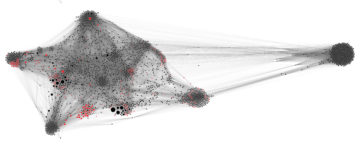Users of conservative or social media in the early days of the COVID-19 outbreak were more likely to be misinformed about how to prevent the virus and believe conspiracy theories about it.


Users of conservative or social media in the early days of the COVID-19 outbreak were more likely to be misinformed about how to prevent the virus and believe conspiracy theories about it.

In the 2016 election cycle, Russian Twitter trolls sent targeted pro- and anti-vaccination tweets via various fake persona types, poisoning the kind of crisis communications that may be critical today in the coronavirus pandemic.

Misleading videos about tobacco use are widespread on YouTube, where views of popular pro-tobacco videos have soared in recent years, a study from the Annenberg Public Policy Center finds.

People who rely on social media for information were more likely to be misinformed about vaccines than those who rely on traditional media, according to new research by the Annenberg Public Policy Center.

An updated Annenberg Science Media Monitor on retractions of scientific findings found just 38% of the articles analyzed indicated how the errors or misconduct occurred.

Contrary to a 2019 study, a data reanalysis found no evidence of an increase in adolescent suicide rates after the release of Netflix's "13 Reasons Why."

In an effort to increase public understanding of the scientific process, the Annenberg Science Media Monitor has published reports seeking to improve science reporting in the news media.

In its fourth report, the Annenberg Science Media Monitor focuses on media reports about crisis and self-correction in science and efforts to address them.

Two-thirds of the news stories analyzed last year debunked the holiday-suicide myth, the false claim that suicides increase over the holidays, according to new research from the Annenberg Public Policy Center.